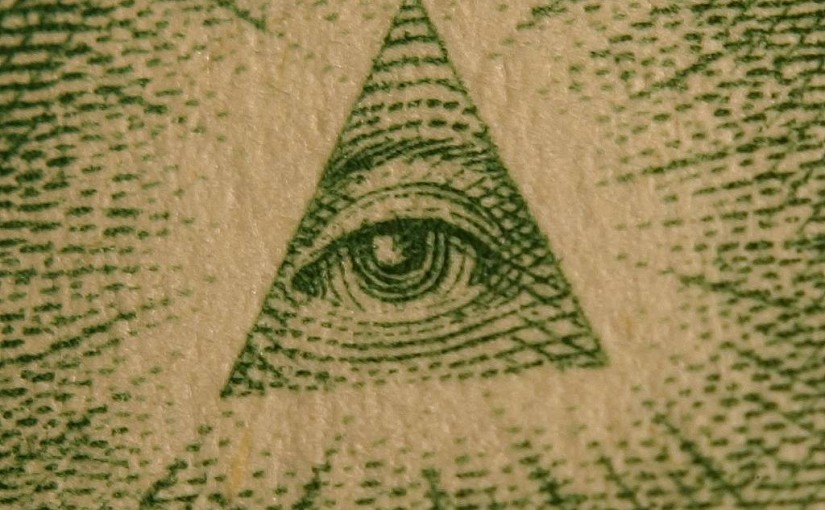The Panopticon is a theoretical prison designed by English philosopher and social theorist Jeremy Bentham in the late 18th century. The shape of the prison places every inmate within view of a watchtower. Although it is physically impossible for the watchman to observe all cells at the same time, the fact that the inmates cannot know when they are being watched means that all inmates must act as though they are watched, effectively changing their behaviour.
A similar concept is the fictional character Big Brother in George Orwell’s novel Nineteen Eighty-Four. In the society that Orwell describes, every citizen is under constant surveillance by the authorities. The people are constantly reminded of this by the slogan “Big Brother is watching you”: a maxim which is ubiquitously on display. In modern culture the term “Big Brother” has entered the lexicon as a synonym for abuse of government power, particularly in respect to civil liberties, often specifically related to mass surveillance.
Some religions subscribe to the belief that they are constantly being watched and judged by a god or other supernatural entity. This idea is pushed by church leaders to encourage compliance with the rules written in their holy book. They want you to believe there is no privacy at all, even in your own bed. The fear of god preserves the church’s authority by suppressing critical thinking and creativity.
In 1768 the French philosopher Voltaire wrote: “If God did not exist, it would be necessary to invent him.” In our government’s ongoing quest for digital omniscience, are they building a new god for us to fear?
Australia’s new data retention laws mean phone and internet companies have to save your metadata information and make it available to various government agencies for at least 2 years. Metadata excludes the content of your communications, but includes the phone number of everyone you call, the URL and IP address of every website you visit, your approximate physical location, and more.
Under this data retention policy you can never know whether your activities are being observed and analysed now or at some time in the future. This situation will lead to self-censorship – the act of censoring or changing your behaviour out of fear of future consequences, despite a lack of actual pressure or coercion. For example the websites you visit today, or the people you communicate with, could affect your application for a government job two years from now. An algorithm could detect your presence at a political rally and automatically tag you as a potential dissident, regardless of whether you were participating or just walking through. Anyone with political aspirations should be especially concerned about their opponents accessing their complete digital history – this is why Australia’s communications minister Malcolm Turnbull uses an encrypted messaging app to hide his metadata from his own government.
ABC reporter Will Ockenden requested access to his own metadata and made it public to show how much it can reveal about his activities, movements, contacts, and personal details. The government says they must invade the privacy of every person to find the criminals and terrorists. If you disagree, you can reclaim some level of digital privacy by disabling location services on your phone, use Signal (iOS, Android) to encrypt phone calls and messages, and use a public VPN service to protect your web browsing activity.
“There was of course no way of knowing whether you were being watched at any given moment. How often, or on what system, the Thought Police plugged in on any individual wire was guesswork. It was even conceivable that they watched everybody all the time. But at any rate they could plug in your wire whenever they wanted to. You had to live-did live, from habit that became instinct-in the assumption that every sound you made was overheard, and, except in darkness, every movement scrutinized.” – George Orwell, 1984
“They’ll collect everyone’s communications, it’s called pre-criminal investigation, which means they are watching everyone all the time. They can search through that information not just in Australia but also share with overseas governments such as the US and UK. And it happens without oversight.” – Former NSA contractor Edward Snowden
